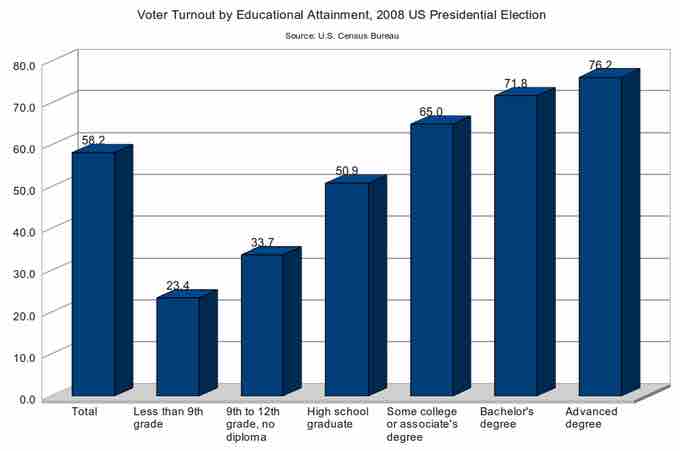Social class impacts one's level of political participation and political influence. Political participation refers to whether or not a person votes in elections, donates to campaigns, or attends public forums where decisions are made, such as town meetings or city council meetings, for example. Political influence refers to the extent to which one's political participation achieves its desired results. For example, if one attends a public forum, is their opinion likely to be heard, or if they donate money, is a politician likely to support their desired policy?
Wealthy, well-educated Americans are more likely to vote and to donate money to politicians than lower class individuals. This trend means that middle and upper class individuals have greater political participation and greater political influence than those in lower positions. Additionally, higher status people are more likely to hold political positions than lower class people. An illustration of this is the presidential election between George W. Bush and John Kerry in 2004. Both had millions of dollars of accumulated wealth, and they had higher degrees from Harvard and Yale, respectively.
Those who vote as members of a social class can be said to be participating in identity politics. Identity politics is a phenomenon that arose first at the radical margins of liberal democratic societies in which human rights are recognized, and the term is not usually used to refer to dissident movements within single-party or authoritarian states. Some groups have combined identity politics and Marxist social class analysis and class consciousness. During the 1980s, the politics of identity became very prominent and was linked with new social movement activism.

Voter Turnout by Educational Attainment –2008 Presidential Election
Educational attainment, an indicator of social class, can predict one's level of political participation. Those with high educational attainment are more likely to vote in elections than those with little education.